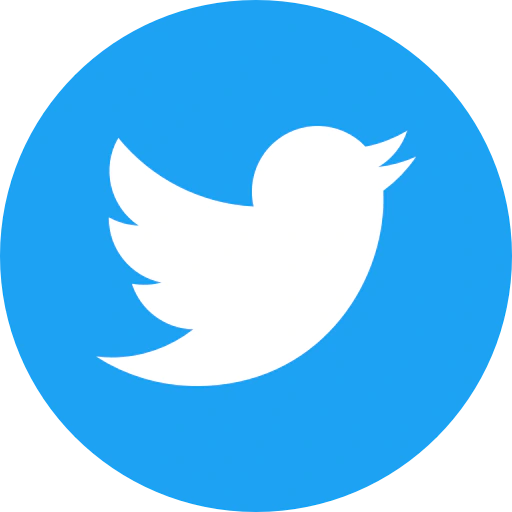TikTown owner ByteDance is moving forward with a plan to sue the United States government over a new law they claim is unconstitutional and a violation of First Amendment rights. Plans to sue the U.S. government were starting to form before United States President Joe Biden signed into law a bill that would ban TikTok from use in the United States.
The very popular video sharing app announced that they are suing the U.S. government in an attempt to "overturn the unconstitutional TikTok ban." ByteDance officially filed their petition (PDF) in federal court on May 7, 2024.
ByteDance says that Congress took "the unprecedented step of expressly singling out and banning TikTok." The U.S. government says that ByteDance must divest TikTok by January 19, 2025 (assuming no extensions) or it risks being shutdown entirely within the United States. This divestment of TikTok is not feasible, so claims ByteDance.
Congress has taken the unprecedented step of expressly singling out and banning TikTok: a vibrant online forum for protected speech and expression used by 170 million Americans to create, share, and view videos over the Internet. For the first time in history, Congress has enacted a law that subjects a single, named speech platform to a permanent, nationwide ban, and bars every American from participating in a unique online community with more than 1 billion people worldwide.
That law — the Protecting Americans From Foreign Adversary Controlled Applications Act (the “Act”) — is unconstitutional. Banning TikTok is so obviously unconstitutional, in fact, that even the Act’s sponsors recognized that reality, and therefore have tried mightily to depict the law not as a ban at all, but merely a regulation of TikTok’s ownership. According to its sponsors, the Act responds to TikTok’s ultimate ownership by ByteDance Ltd., a company with Chinese subsidiaries whose employees support various ByteDance businesses, including TikTok. They claim that the Act is not a ban because it offers ByteDance a choice: divest TikTok’s U.S. business or be shut down.
But in reality, there is no choice. The “qualified divestiture” demanded by the Act to allow TikTok to continue operating in the United States is simply not possible: not commercially, not technologically, not legally. And certainly not on the 270-day timeline required by the Act. Petitioners have repeatedly explained this to the U.S. government, and sponsors of the Act were aware that divestment is not possible. There is no question: the Act will force a shutdown of TikTok by January 19, 2025, silencing the 170 million Americans who use the platform to communicate in ways that cannot be replicated elsewhere.
That law — the Protecting Americans From Foreign Adversary Controlled Applications Act (the “Act”) — is unconstitutional. Banning TikTok is so obviously unconstitutional, in fact, that even the Act’s sponsors recognized that reality, and therefore have tried mightily to depict the law not as a ban at all, but merely a regulation of TikTok’s ownership. According to its sponsors, the Act responds to TikTok’s ultimate ownership by ByteDance Ltd., a company with Chinese subsidiaries whose employees support various ByteDance businesses, including TikTok. They claim that the Act is not a ban because it offers ByteDance a choice: divest TikTok’s U.S. business or be shut down.
But in reality, there is no choice. The “qualified divestiture” demanded by the Act to allow TikTok to continue operating in the United States is simply not possible: not commercially, not technologically, not legally. And certainly not on the 270-day timeline required by the Act. Petitioners have repeatedly explained this to the U.S. government, and sponsors of the Act were aware that divestment is not possible. There is no question: the Act will force a shutdown of TikTok by January 19, 2025, silencing the 170 million Americans who use the platform to communicate in ways that cannot be replicated elsewhere.
There has been some interest by various U.S. investors to purchase TikTok from ByteDance. There was even an interest expressed by former Activision CEO Bobby Kotick to purchase the social media app. However, ByteDance said that they would rather just shut down TikTok in the United States rather than sell it if they are unable to reverse this ban. Selling TikTok comes with many challenges given that ByteDance is beholden to Chinese law. At one point, it was even suggested that TikTok could be sold but without the app's lucrative algorithm that made it popular in the first place.
The U.S. government has been trying to get TikTok banned in the United States since the Trump Administration. The government says that because TikTok is owned by a Chinese company, it makes the app a threat to national security. Concerns were also raised about how TikTok could be used to spread disinformation and propaganda in the lead up to the presidential election. Of course, if it was just about the spread of disinformation, U.S. based Twitter would have been banned ages ago.


Just to clarify, because hosting lies is not the same as the company itself spreading lies, which if they did i assume a case would be brought against them immediately, though i also assume most companies are in a constant state of fighting lawsuits so maybe they're already in one.
The difference is there are parts of TikTok that i assume would be unable to be investigated unlike Twitter, the only assurance the US government has that things are above board is the CEO's word, so basically nothing.